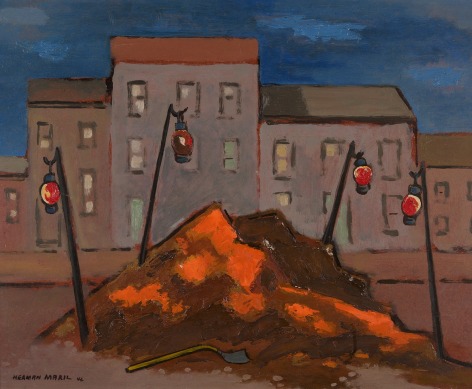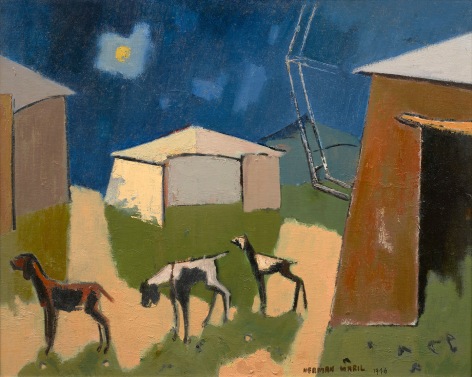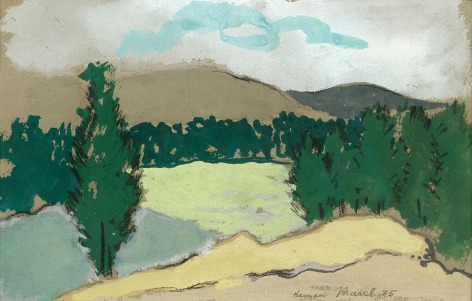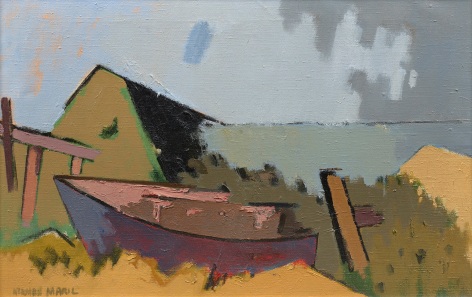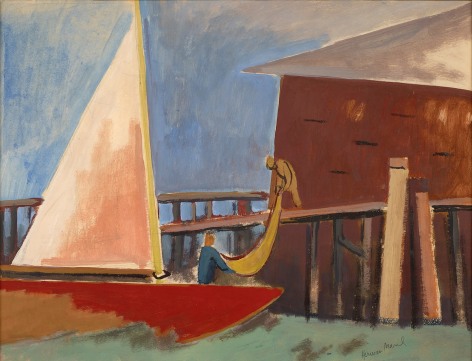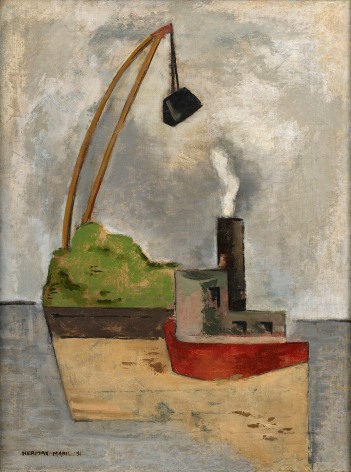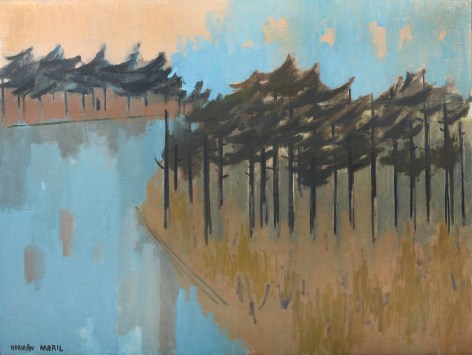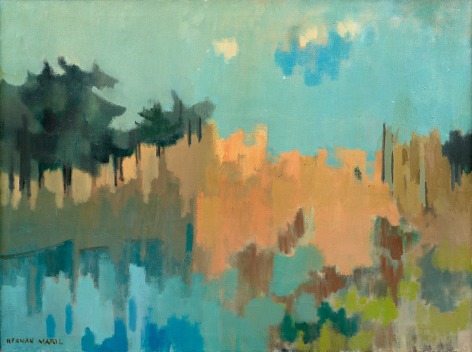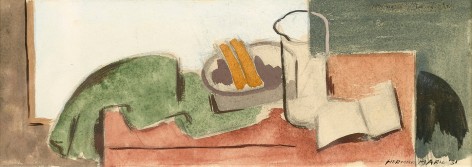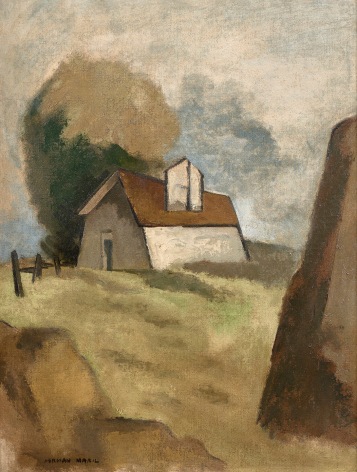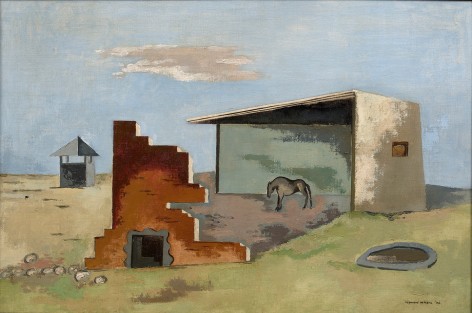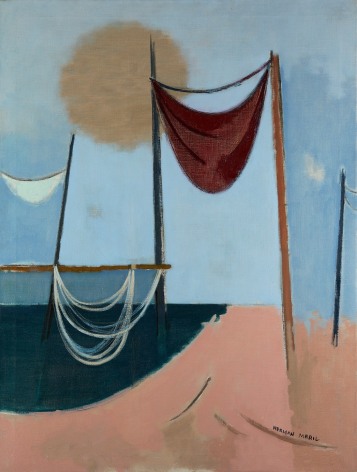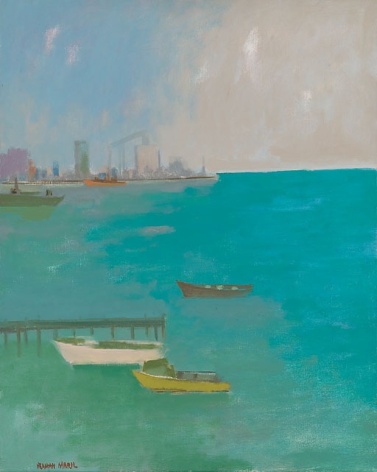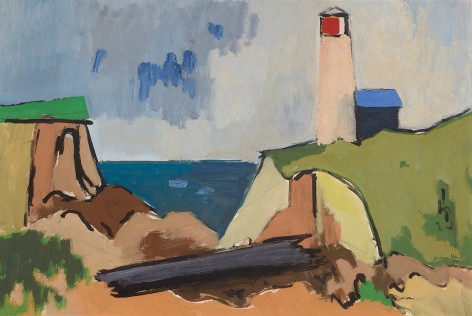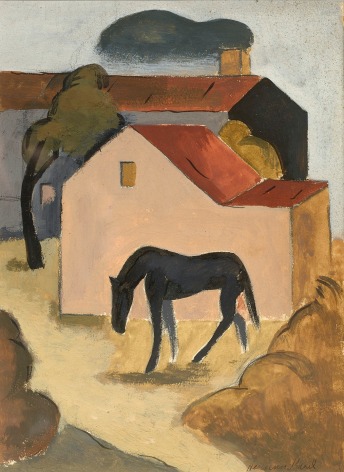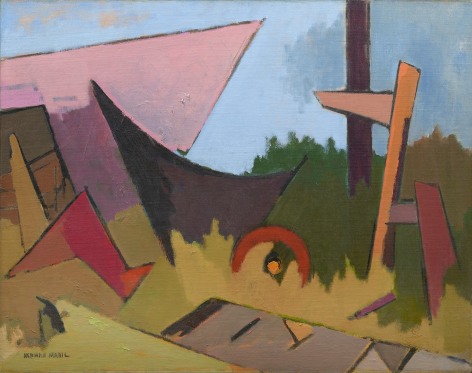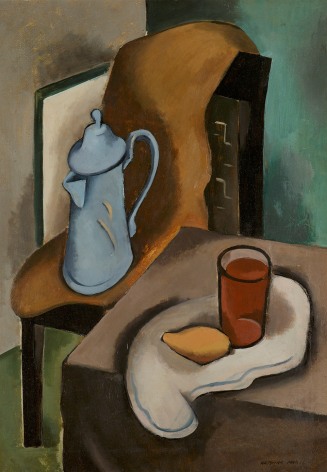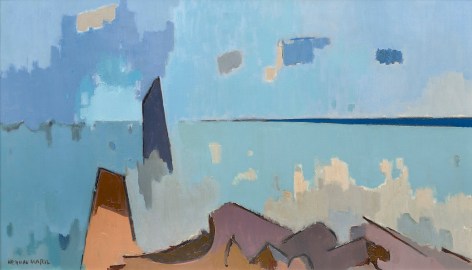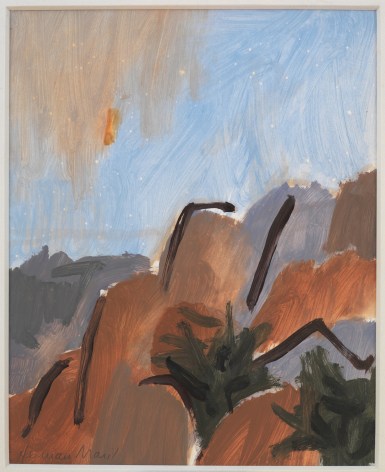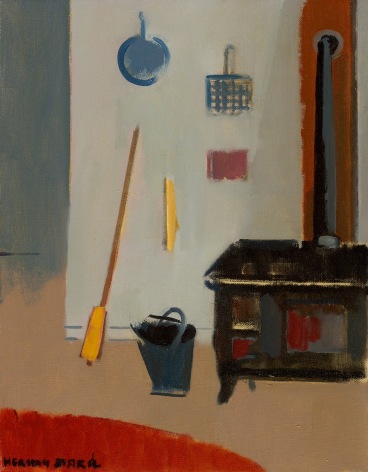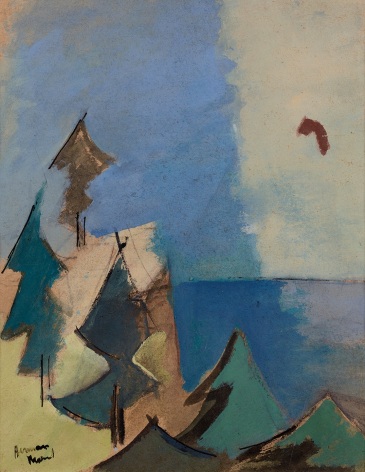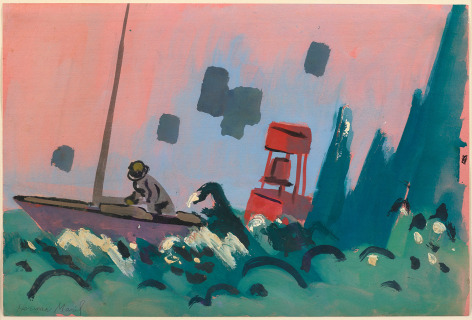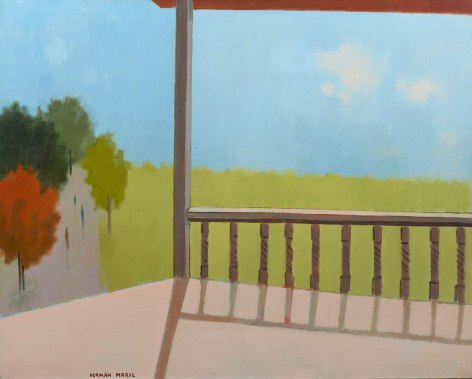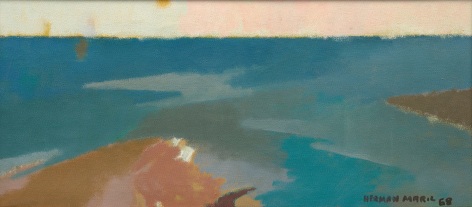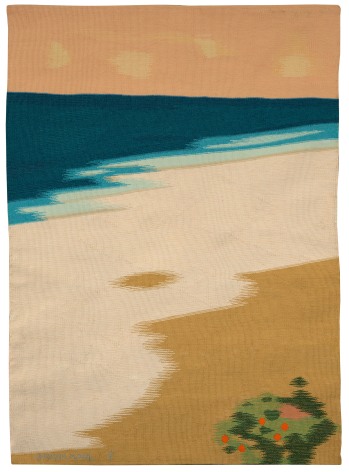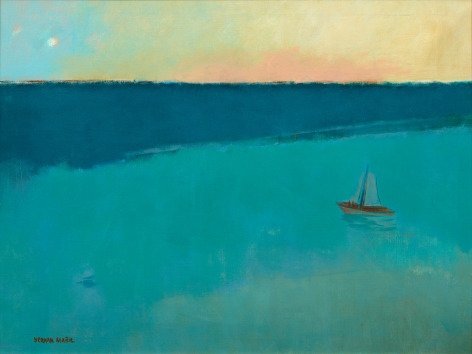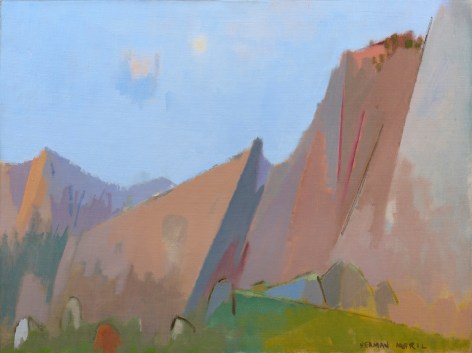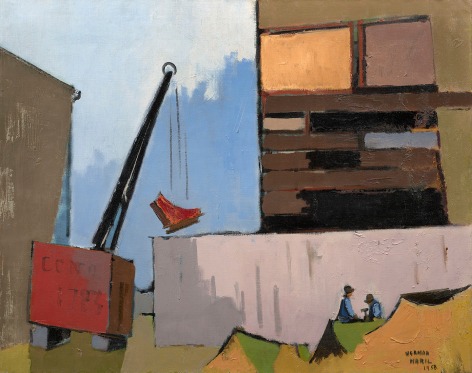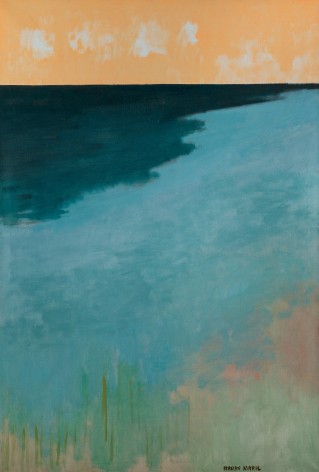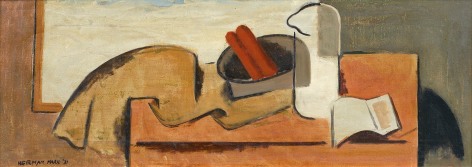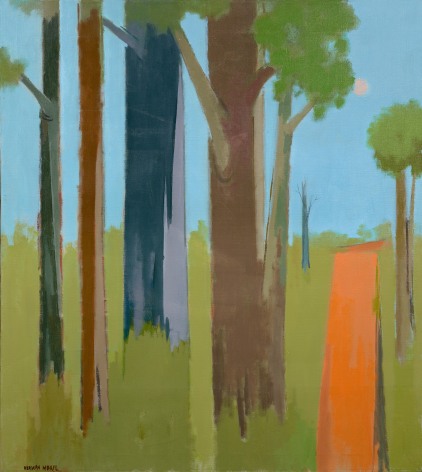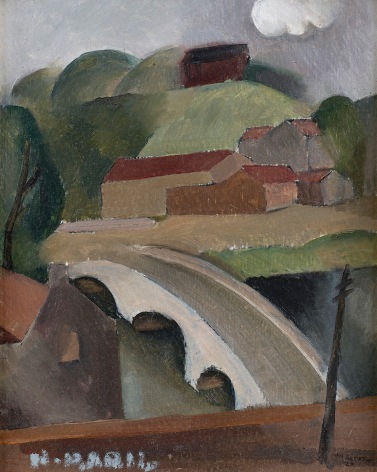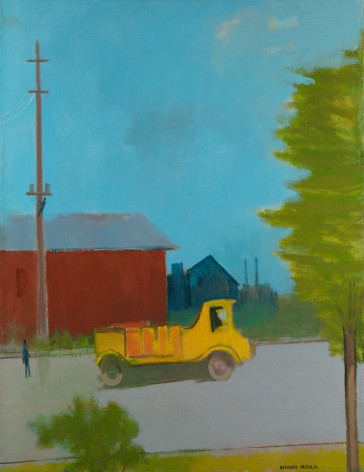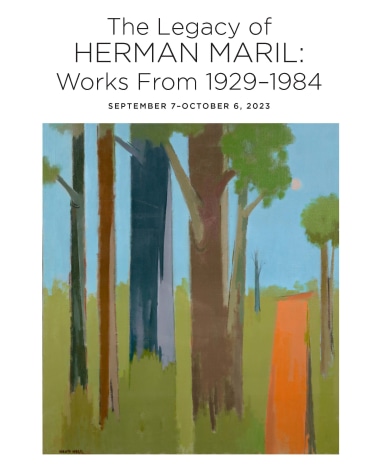Debra Force Fine Art is pleased to present The Legacy of Herman Maril: Works from 1929 - 1984. This is the gallery’s third exhibition of works from the artist’s estate spanning Herman Maril’s (1908 – 1986) over fifty-year career.
The geometric planes and dark outlines of Maril’s paintings from the 1920s and 1930s reflect the influence of European Modernists George Braque and Paul Cezanne during this period in the young artist’s career. This is especially apparent in several early tabletop still lifes including Interior with Pitcher (1931), Early Still Life with Pitcher (1931), and Table Settings (1931), which reflect the simplified and abstracted forms of Cubism. Maril built upon these ideas to create a unique painting style as the years progressed.
The artist’s early interest in Civil Engineering is echoed in several of the paintings in the exhibition featuring construction or industrial themes inspired by his native Baltimore and the city’s busy harbor, including Viaduct (1929), 3am (1946), Construction Crane (1931), and The Harbor, Baltimore (1980). Architecture also defines many of the works in the exhibition, from the tents and a Ferris Wheel in At the Fairgrounds (1946) to rural structures in Farm House (1930) and The Farm (1936), and fishermen’s huts along the Provincetown coast in Untitled (Hurricane) (1954) and Coming In (1960). These works also allowed the artist to combine recognizable scenes with abstract geometric elements.
Maril first visited Cape Cod during the summer of 1934, when Duncan Phillips visited his Chatham studio and purchased two of his paintings. The artist returned to the area in 1948, spending his honeymoon in Provincetown. From that point on, he and his family spent most summers there until his death in 1986. The heavily outlined, smaller works of the 1940s and 1950s gave way to larger, more simplified canvas from the 1960s onward, where the artist used large blocks of color to depict the sea and changing tides, large sand dunes, and boats and wharfs of the fishermen on the Cape. Intide (1958), Cat Tails (1967), Still Waters (1973), and Sea and Pink Sky (1984) show the artist’s love of Provincetown and the surrounding area as well as his increasingly open, abstract, and colorful painting style. One of the artist-designed tapestries, The Sea (circa 1972), shows the deep blue water contrasting with the shallow flats and sand exposed by low tide.
Additional paintings and works on paper feature views of the Berkshires, the coast of Maine, and the landscape of the Southwest.

